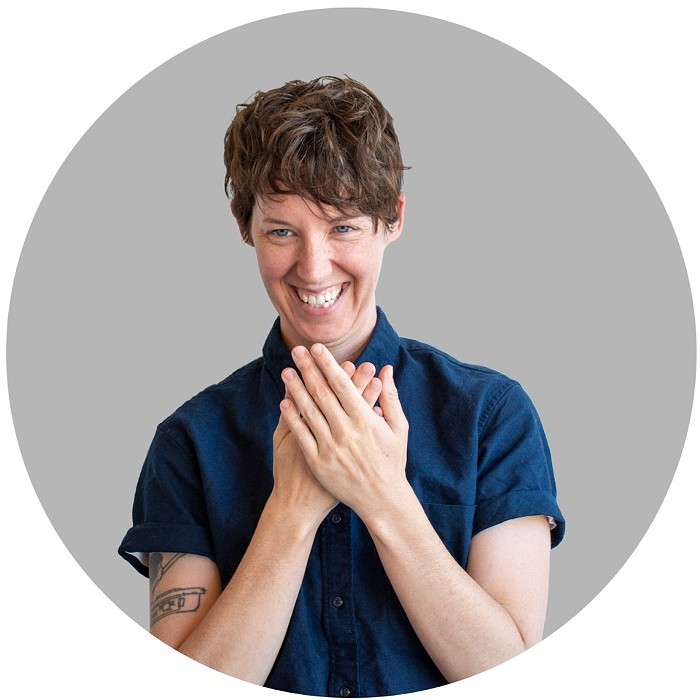
Thursday night's debate had the smallest field of candidates thus far, which made for much better viewing. For one, it was a blissfully short two and a half hours, which I assume was due to the lower number of candidates but may have had something to do with the fact that it was hosted by PBS, a channel more inclined to cater to the early-bird crowd.
Despite the shorter runtime, with just seven candidates on stage instead of the usual 37, there was time to actually get into the issues rather than just repeating talking points as quickly as possible (although there was, to be sure, plenty of that). But the best part was the moment when Mayor Pete and Elizabeth Warren try to out middle-class each other. Watch.
Basically, Warren dragged Mayor Pete for hosting a fundraiser in a wine cave with a bunch of rich people. "We made the decision many years ago that rich people in smoke-filled rooms would not pick the next president of the United States," Warren said. "Billionaires in wine caves should not pick the next president of the United States."
Pete jabbed back. "You know, according to Forbes magazine, I’m literally the only person on this stage who is not a millionaire or a billionaire," he said. "So this is important. This is the problem with issuing purity tests you cannot yourself pass. If I pledge—if I pledge never to be in the company of a progressive Democratic donor, I couldn’t be up here. Senator, your net worth is 100 times mine."
Granted, that might be because he's 37 years old and has yet to retire from public office to start consulting, but the blow certainly landed. The audience whooped, and immediately afterward, Tom Steyer jutted in to say, if I'm remembering correctly, "Well, technically mine is a wine cavern," and Joe Biden started shouting, "I get all my wine in boxes!" It was an entertaining moment, as far as these things go.
But I want to get back to something Elizabeth Warren said: "We made the decision many years ago that rich people in smoke-filled rooms would not pick the next president of the United States."
She's right. Until the 1970s, party elites chose Presidential candidates on their own, probably, yes, in smoke-filled rooms (then again, what room wasn't smoke-filled? Pretty sure you could smoke in hospitals back then). And then came Vietnam. Incumbent Democrat Lyndon Johnson wasn't running for re-election, and party leaders choose Humbert Humphrey to take the nomination. Humphrey, however, wanted to continue fighting in Vietnam, a political stance that had become increasingly unpopular, and the 1968 Democratic Convention in Chicago, where he was named the candidate, was marked not just by protests, but by riots. There was violence both inside and outside the convention, and in the aftermath, the party was even less unified than it is now. Soon after, Richard Nixon beat Humphrey in a landslide, and the Dems decided it was time to reform the system. Enter, primaries.
Now, Warren seems to think that the primary system is a good thing. It is, to be sure, more democratic than a bunch of dudes in Brooks Brothers deciding who they like best. But when the man in the White House has less political experience than a dog catcher in Duxbury, Vermont, it's a little hard to see the benefits of the primary system. Obviously, party leaders have the capacity to choose crooks, too (see: Richard Nixon). And I'm not saying we should revert to our old ways with vape-filled rooms. But I am saying that this system we've got also kind of sucks. It's too long, it's stressful, it's expensive, and the primaries themselves are seriously flawed. The results from the first primaries influence all those that come after, and I'm not sure why the good people of Iowa and New Hampshire should have that power.
You could fix that one problem with a national primary day or something similar, but that would not fix the system. Primary voters tend to be more politically engaged and more ideologically extreme than general election voters, and that doesn't necessarily mean they are good at picking electable candidates.
That, I'm afraid, is what's going to happen next year: The most passionate Dems, the ones who actually show up to the primaries or caucuses, will choose someone progressive Democrats love and moderates, independents, and Republicans hate even more than they hate Donald Trump. And because Democrats already have an uphill battle to winning the Electoral College thanks to both gerrymandering and population distributions, we'll see the same result in 2020 than we saw in 2016: The Democratic nominee will win the popular vote, and Donald Trump will still take the White House. But until that happens, we've got wine caves to argue about.













